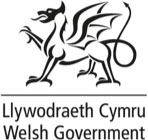
Doughnut Economics and the Wellbeing Economy – a pivotal moment for Wales
There is a growing consensus that there needs to be a radical change in our economic thought to build a prosperous, sustainable and fairer Wales. This is something many people have been passionate about for a long time, but now more than ever it feels as if we’ve reached a turning point.
At Cwmpas, we believe our economy and society should work differently, putting people and planet first. We support people and communities to start and grow social enterprises and co-operatives, support businesses to transition to employee ownership and maximise their social value, and work with government and public bodies to foster prosperous, inclusive and sustainable communities.
Supporting the growth of these business models and principles will truly refocus our economy to prioritise well-being and sustainability. We are passionate about working with others to achieve this and were delighted to partner with WE Cymru to bring people together to discuss how to do it.
Festival of Ideas
The Wellbeing Economy Cymru Festival of Ideas was born on 18 November at the Swansea Arena, organised by WE Cymru in partnership with Cwmpas, 4theRegion, Oxfam Cymru, Public Health Wales, and the Future Generations Commissioner. People from a range of different organisations, sectors, communities and perspectives came together to discuss the idea of a wellbeing economy, and how it can become the dominant economic framework in Wales and make tangible impacts to people’s lives.
The urgency of the situation in Wales can’t be underestimated. On the day of the conference, BBC Wales reported that the number of homeless people in Wales is at a record high.
In their autumn Snapshot of Poverty, the Bevan Foundation found that:
“Indications of hardship remain at much the same level as they have for several years, despite the return to more normal rates of inflation. Across Wales, many continue to be unable to afford the essentials. At the same time, rates of borrowing and arrears on bills continue to steadily increase, highlighting the terrible toll that the crisis is having on people’s lives.”
It can’t go on like this.
Wellbeing Economics
At the heart of wellbeing economics is the assertion that the focus of economic policy should be the improvement of people’s lives in a fair and sustainable way, not economic growth for its own sake.
The keynote speech at the Festival of Ideas was delivered by one of the most high-profile economists in the world, Kate Raworth, who gave an inspiring presentation about why this change in economic approach is necessary. It was fascinating to hear how her internationally-renowned Doughnut Economics model is being implemented across the world, across different countries, sectors and tiers of government. The model is a visual tool to understand the balance between social foundations and ecological ceilings and how sustainable development should aim to create economies and communities that fit within these boundaries.
Crucially, doughnut economics or the pursuit of a wellbeing economy does not exclude the possibility of economic growth.
But a series of questions from Donella Meadows were key:
“Growth of what, and why, and for whom, and who pays the cost, and how long can it last, and what’s the cost to the planet, and how much is enough?”
While supporting more positive economic activity may well create growth, we shouldn’t sacrifice parts of our communities that we value if they do not optimise it, or hand away ownership of our land or assets in exchange for a quick growth win. Particularly where that growth means profit that is extracted from the community rather than redistributed. We need to invest in and value the parts of our economy and communities that create tangible impacts for those suffering the most, create the conditions for everyone to thrive, and create local economies that are redistributive, sustainable and resilient in the face of the challenges we face.
Examples from places across the world demonstrate that this new approach to economic development can be implemented, and that it has a positive impact on people’s lives.
Changing how we do business
Supporting this approach to economic development means encouraging and nurturing diverse business models that embed wellbeing and democratic ownership.
At Cwmpas, we have been supporting co-operatives, social business and community enterprise for decades. It’s time we put these models at the heart of our economic strategy in Wales – building new anchor institutions that create a new spirit of entrepreneurialism that answers the challenges we face and shares wealth and profits in our communities.
Wales has led the way on this before, and is well-placed to do it again. We are a country big enough to encompass a diversity of communities and sectors with an economy and financial levers sufficient to make a tangible impact, while agile and connected enough to be innovative in policy development and implementation. We have shown the political will to do things differently through the Well-being of Future Generations Act.
And as previously discussed, the need for change is stark and immediate.
Crucially, we aren’t starting from nothing. Social enterprises and community-owned businesses are already doing incredible work – the size of the social business sector in the most recent mapping report in 2022 was is calculated as £4.8bn, with total employment at 65,299 and the number of volunteers at 54,261, creating a wide range of outcomes ranging from improving health and well-being, to addressing social exclusion, to protecting the environment.
In Wales, we’ve more than doubled the number of employee-owned businesses in Wales since 2021, anchoring organisations in communities and creating better outcomes for workers.
We have a long history of Welsh communities building co-operative, community-owned businesses, building community wealth and empowering local people.
These are not new ideas – but putting them at the heart of economic policy is new. And doing so would be the first step to realising the ambition of a well-being economy in Wales that truly embeds the aims of the Wellbeing of Future Generations Act.
Turning inspiration into action
We were inspired by all the speeches at the Festival of Ideas in Swansea – but just as much by the conversations we had throughout the day with people across Wales determined to make this happen.
Whether it’s people starting their own community initiatives to support local people and build community wealth, academics using their knowledge and experience to advance our understanding, or public bodies looking to transform their approaches and become anchor institutions in the wellbeing economy – we all have a role to play in making this happen.
The next step for the wellbeing economy movement is identifying tangible steps we can make, and we were delighted to see those steps being articulated at the event on Monday. The publication of an alternative measure of economic performance to rival GVA per capita was particularly important, and we look forward to building on this with partners and setting out policies which we believe will build community wealth and support the wellbeing economy.
Cwmpas works across a range of sectors, and supports communities to re-balance our economy and support wellbeing. We’re excited about being at the forefront of this campaign at a pivotal moment for the Welsh economy and our communities.









